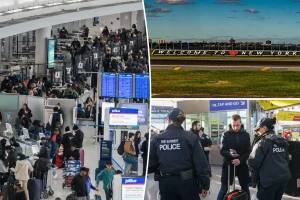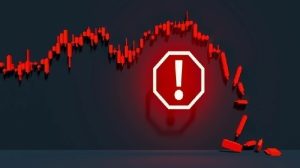Iran Faces Imminent Nuclear Sanctions as Last-Minute Diplomatic Efforts Collapse
International Community Moves Forward with Punitive Measures as Tehran’s Nuclear Program Raises Global Concerns
In a significant development that heightens tensions in an already volatile Middle East, diplomatic efforts to delay sanctions against Iran’s controversial nuclear program have fallen short, setting the stage for new punitive measures to take effect early Sunday local time. The failed bid to secure a six-month postponement marks a critical juncture in the long-running dispute over Tehran’s nuclear ambitions and signals a potential new phase in international efforts to contain what many Western powers consider an existential threat to regional stability.
The sanctions, backed by a coalition of Western nations led by the United States and European Union, come after months of increasingly fraught negotiations and Iran’s continued advancement of uranium enrichment activities that exceed limits established under the 2015 Joint Comprehensive Plan of Action (JCPOA). According to diplomatic sources speaking on condition of anonymity, last-ditch negotiations in Vienna collapsed when Iranian representatives refused to commit to specific verification measures that would demonstrate compliance with international nuclear safeguards. “We’ve reached a point where promises and assurances are no longer sufficient,” said one senior European diplomat involved in the talks. “There must be concrete, verifiable actions from Tehran, and unfortunately, we haven’t seen that level of commitment.”
Historical Context and Escalating Tensions Frame Current Crisis
The impending sanctions represent the latest chapter in a complex diplomatic saga that has spanned decades. Iran has consistently maintained that its nuclear program serves purely peaceful purposes, primarily focused on energy production and medical research. However, intelligence assessments from multiple countries have raised serious questions about potential military dimensions to the program. The International Atomic Energy Agency (IAEA), the UN’s nuclear watchdog, has repeatedly expressed concerns about limitations on its inspection capabilities and unexplained traces of uranium found at undeclared sites across Iran.
The 2015 nuclear deal, considered a landmark achievement in nuclear non-proliferation efforts, temporarily eased tensions by imposing strict limits on Iran’s nuclear activities in exchange for sanctions relief. However, the agreement began unraveling in 2018 when then-U.S. President Donald Trump unilaterally withdrew from the pact and reimposed crippling economic sanctions under a “maximum pressure” campaign. Since then, Iran has progressively abandoned its commitments under the deal, increasing uranium enrichment levels far beyond the 3.67% purity cap established in the agreement. Recent IAEA reports indicate that Iran has enriched uranium to 60% purity, a short technical step from the 90% needed for weapons-grade material. “The timeline for Iran to produce enough fissile material for a nuclear device has shrunk dramatically,” noted Dr. Alexandra Simmons, nuclear proliferation expert at the Institute for International Security Studies. “What once would have taken a year or more could now potentially be accomplished in weeks.”
Economic Implications and Humanitarian Concerns
The new sanctions package targets key sectors of Iran’s economy, including its energy infrastructure, banking system, and shipping industry. Analysts predict these measures will further strain an Iranian economy already suffering from inflation rates exceeding 40% and widespread unemployment. The Iranian rial has plummeted to historic lows against major currencies in anticipation of the sanctions, exacerbating the cost-of-living crisis facing ordinary citizens. Humanitarian organizations have expressed concern about potential collateral damage to civilian populations, particularly regarding access to essential medicines and medical equipment that theoretically remain exempt from sanctions but often become difficult to import due to financial restrictions and compliance fears among international suppliers.
“While these sanctions target the regime’s ability to fund its nuclear program, we cannot ignore the very real human costs,” said Marco Delgado, director of the Center for Humanitarian Diplomacy. “We’re seeing a troubling pattern where essential humanitarian goods become caught in the crossfire of geopolitical disputes.” Iranian officials have repeatedly condemned the sanctions as “economic terrorism” and accused Western powers of using the nuclear issue as a pretext for broader geopolitical aims. In a fiery speech delivered Friday to supporters in Tehran, President Ebrahim Raisi vowed that Iran would not yield to international pressure. “The Iranian nation has withstood sanctions for decades and grown stronger,” Raisi declared. “These new measures will fail just as previous ones have failed. Our scientific progress cannot be stopped.”
Regional Implications and Security Concerns Intensify
The sanctions come amid heightened regional tensions following months of conflict between Israel and Hamas in Gaza, and growing concerns about a wider regional war involving Iran-backed proxies across the Middle East. Intelligence sources report increased military readiness among Iranian Revolutionary Guard units, while Israel has signaled its determination to prevent Iran from achieving nuclear weapons capability by any means necessary. The possibility of Israeli preemptive strikes against Iranian nuclear facilities looms as a worst-case scenario that could trigger a devastating regional conflict. Meanwhile, Gulf states led by Saudi Arabia have intensified diplomatic outreach to Iran in recent months, seeking to de-escalate tensions while simultaneously bolstering their own defensive capabilities.
“We’re witnessing a dangerous convergence of flashpoints across the region,” explained Dr. Nadia Khoury, professor of international relations at Georgetown University. “The nuclear dispute doesn’t exist in isolation – it’s intimately connected to proxy conflicts in Yemen, Syria, Iraq, and Lebanon. Any miscalculation could trigger a catastrophic chain reaction.” The sanctions also arrive at a time of complex global dynamics, with Russia and China increasingly aligned with Iran in opposition to Western influence. Both Moscow and Beijing have criticized the new sanctions as counterproductive and have indicated willingness to expand economic cooperation with Tehran, potentially undermining the effectiveness of Western measures. A joint statement from the Russian and Chinese foreign ministries called for “dialogue rather than coercion” and warned that sanctions would “only deepen distrust and complicate paths to diplomatic resolution.”
Diplomatic Pathways Forward Remain Uncertain
Despite the imminent implementation of sanctions, diplomatic channels remain open, according to Western officials who emphasize that punitive measures aim to bring Iran back to meaningful negotiations rather than pursue regime change. The European Union’s foreign policy chief, during a press conference in Brussels, stressed that “the door to diplomacy is never closed” and outlined specific steps Iran could take to achieve sanctions relief. These include resuming full cooperation with IAEA inspectors, halting high-level uranium enrichment, and dismantling advanced centrifuges that exceed JCPOA limitations.
However, prospects for a breakthrough appear dim in the immediate future. Domestic politics in both Iran and the United States complicate diplomatic flexibility, with hardliners in Tehran viewing compromise as capitulation and American lawmakers across the political spectrum deeply skeptical of Iranian intentions. The upcoming U.S. presidential election further clouds the diplomatic horizon, introducing additional uncertainty about future policy directions. “We’re in a dangerous holding pattern,” remarked former U.S. nuclear negotiator Dr. Richard Bennett. “Iran continues advancing its nuclear capabilities while maintaining strategic ambiguity about its ultimate intentions. Meanwhile, the international community remains divided on how best to respond.” As Sunday’s deadline approaches, global attention focuses on Tehran’s potential response to the sanctions. While some analysts predict a measured reaction designed to avoid further escalation, others warn that Iranian leadership might calculate that further nuclear advancement represents their strongest negotiating leverage. What remains clear is that the nuclear standoff has entered a new and potentially more volatile phase, with profound implications for regional security and the global non-proliferation regime.










